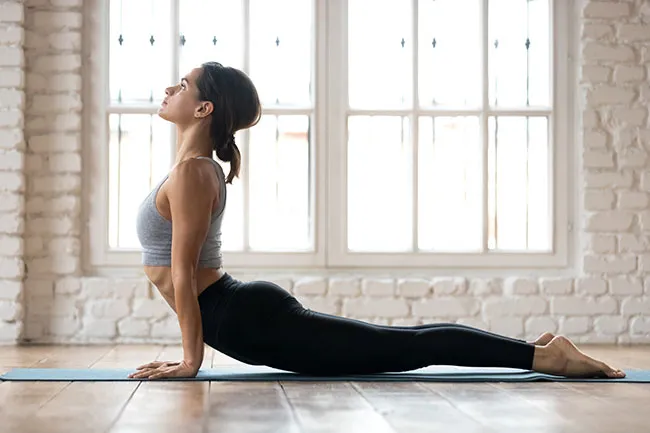Four Ways Yoga Can Boost Your Mental Health

Did you know that 50% of mental health issues appear by age 14, and 75% by age 24? Feeling overwhelmed or stressed is common at any age — you might feel bogged down and unmotivated, especially during these uncertain times, and you’re not alone. Mental health awareness continues to grow and there are many ways to tackle these feelings and brighten your mood. Yoga is a great way to start improving your emotional state and clarity.
There’s more to yoga than “downward dog” and “warrior two.” Along with the physical benefits of increased flexibility, weight loss, muscle strength and tone, it has also been proven to be a great mental health practice. You might be thinking, “Yoga? No thanks. I am not flexible and don’t know how to connect with my inner thoughts,” or maybe, “If I’m going to work out, I want to go for a run and lift weights, not stretch on a mat.” It’s easy to use these thoughts as an excuse not to try yoga, but it gives kids, teens and adults alike the emotional boost that many of us crave. Here are four ways how:
1. Yoga increases body awareness.
One of the main focus points in yoga is paying attention to your breath. Although breathing may not seem like a very impactful exercise, it relieves stress and anxiety and allows you to connect to your body and how you are feeling. Being aware of your body and allowing yourself to appreciate each aspect can lead to improved self-confidence and trust in yourself. In order to become more rooted and centered in the other facets of your life, you must first be proud of who you are.
2. Yoga promotes self-efficacy.
Practicing yoga can also promote self-efficacy. Some tasks may seem daunting and difficult, and you may not have confidence in your abilities; yoga can help. During the practice, you will be able to focus on your personal growth and transformation through peaceful reflection, as your mind and body discover trust and self-assurance. Despite the many stresses of life, yoga will empower you to push through challenges and accomplish goals.
3. Mindfulness can lower stress and calm the nervous system.
Although other types of exercise may also be stress relieving, yoga is unique in that allows you to focus on self-compassion and balance. When practicing yoga, you will learn that the mind and body are very connected; many of us live in either our mind or our body, but not both. By working to balance the connection of these two and by using your breath as a focal point, you’ll be able to stay grounded in your body and clear out distracting thoughts, lowering stress levels and leading to a sense of calmness.
4. Being active boosts your mood.
It has been proven time and time again that doing any kind of physical activity will make you feel happier and more excited about life. The brain releases “happy chemicals” called endorphins which make you feel more relaxed and improve your mood. Staying active and exercising regularly also helps you fall asleep more easily and stay asleep longer. According to a study by the National Sleep Foundation, “people with insomnia have greater levels of depression and anxiety than those who sleep normally.” Sleep is great for your body and mind and it can heavily influence how you see the world, your emotions and motivation.
Yoga is great for the whole family, and will benefit kids and teens as well as adults. Introducing your children to yoga at an early age can help establish healthy habits and increase calmness. With the help of yoga and meditation, you and your family will be on the road to living a less stressful, more motivated and happy life.
Whether you’re a seasoned “yogi” or a beginner, come try a class at the Y. The YMCA of Northern Colorado offers a variety of classes for all levels at our Boulder, Lafayette and Longmont branches. Learn more about our classes and schedules on our website.

